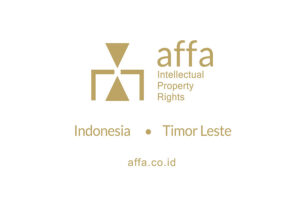|
INDONESIA |
In Indonesia, Law No. 20, 2016, on Marks and Geographical Indications, known as the Trademark Law, is the country’s primary law concerning trademarks. However, there are several bylaws that regulate more specific matters, including:
- Government Regulation No. 28, 2019, concerning Types and Tariffs of Non-Tax State Revenues Applicable to the Ministry of Law and Human Rights, which sets the official fees for various actions that can be filed before the Directorate General of Intellectual Property (DGIP) under the Ministry of Law and Human Rights of Indonesia;
- Government Regulation No. 22, 2018, pertaining to the International Registration of Marks Under the Protocols Relevant to the Madrid Agreement Concerning the International Registration of Marks, which covers all aspects of international registration filed in or from Indonesia;
- Government Regulation No. 90, 2019, concerning the Trademark Appeal Commission, established on 29 August 1995, concerning Procedures for Application, Examination and Settlement of Appeals at the Mark Appeal Commission; and
- The Ministry of Law and Human Rights Regulation No. 67, 2016, concerning the Trademark Registration Decree of the Director General of Intellectual Property in the Field of Trademarks. The ministerial regulation prescribes, among other things, the requirements of registration, classes of goods and services, and the rectification of issued certificates and recordals.
Scope of trademarks
According to article 1 of the Trademark Law, a mark is any sign capable of being represented graphically in the form of drawings, logos, names, words, letters, numerals, colour arrangements, in two and/or three-dimensional shapes, sounds, holograms, or a combination of two or more of these elements to distinguish goods and/or services produced by a person or legal entity in trading goods and/or services.
Given this definition, the law acknowledges two types of trademarks: traditional and non-traditional marks.
Applying for registration

Managing Partner at AFFA Intellectual Property Rights in Jakarta
Tel: +62 812 8700 0889
Email: emirsyah.dinar@affa.co.id
Since the Trademark Law adopts the first-to-file principle, in general, any individual, organisation or company can file for trademark registration. However, the law also regulates trademark registrations that are filed in bad faith. Article 21 of the Trademark Law stipulates that an application is refused if it is submitted by an applicant in bad faith.
While the implementation of this article during substantive examination holds true for some applications that have similarities with the already established and well-known marks, in practice, it is quite challenging to determine whether an application is filed in bad faith or not.
A bad-faith application that later matured to registration can always be invalidated at the Court of Commerce, as regulated under article 77 of the Trademark Law, which stipulates the following: “The lawsuit for invalidation may be filed in unlimited time if there is bad faith and/or the relevant mark contravenes the state ideology, laws and regulations, morality, religions, decency and public order.”
Filing and documentation
A trademark search is strongly suggested for anyone who wishes to file a trademark application in Indonesia. The search report will identify potential hazards and stumbling blocks to an otherwise successful registration process.
Assuming the search report gives an all-clear sign to further the application process, the applicant will then need to supply the following:
- Name of applicant
- Address
- List of goods and services
- Representation of the mark to be filed, which can be in the form of woodmark, logo or non-traditional marks
Once the necessary information has been provided, the patent lawyer will prepare two documents to be signed by the client: a power of attorney, and a statement of mark ownership.
Since 2019, e-filing is the only acceptable method of filing in Indonesia.
Timeline
Assuming the application does not receive any opposition and provisional refusal, then it may only take 10-13 months from filing to obtaining a registration number. This estimate is significantly faster than it used to be, when even a straightforward registration would take two to three years.
Opposition and invalidation
Applications are published for two months only. During the publication period, any interested party may file for opposition, and they will be considered during the substantive examination stage.
Once the publication period has lapsed, there are no other formal means of filing for opposition, including extension requests.
To have a successful opposition proceeding, it is strongly recommended that the opposer has valid legal standing, namely, an earlier trademark application or registration in Indonesia. Otherwise, it is likely that the examiner will reject the opposition by citing the first-to-file principle.
Invalidations and cancellations initiated by any third party, which have to be filed at the court of commerce, are only feasible once the trademarks to be invalidated or cancelled have been registered.
Famous foreign trademarks
A trademark can only be protected if it is registered in Indonesia, regardless of its fame. However, the Trademark Law has a mechanism to somewhat protect a famous foreign trademark from bad-faith registrations by other parties.
Should another party try to maliciously file an application for a trademark that is identical or similar to a famous foreign trademark, such application will be rejected on the basis of article 21 of the Trademark Law, which stipulates the following:
“An application is refused if the mark is substantively similar to or identical with a well-known mark of other parties for similar goods and/or services, or a well-known mark of other parties for different goods and/or services complying with certain requirements.”
The issue is then shifted to what constitutes as a famous trademark. Article 18 of the Ministry of Law and Human Rights Regulation No. 67, 2016, concerning the Trademark Registration Decree of the Director General of Intellectual Property in the Field of Trademark, has set out the criteria of what makes a trademark famous:
- Level of knowledge or public recognition of the mark in the business field concerned as a well-known mark;
- Volume of sales of goods and/or services and benefits derived from using the mark by the owner;
- Market share controlled by the mark in relation to the circulation of goods and/or services in the community;
- Area of use of the mark;
- Period of use of the mark;
- Intensity of promotion of the mark, including the value of investment used for the promotion;
- Number of trademark applications and registrations around the world;
- Success rate of law enforcement, in particular regarding the recognition of the mark as a well-known mark by an authorised institution; and
- Valuation of the mark because of the reputation and quality assurance of goods and/or services protected by the mark.
However, a mark that is famous abroad does not always necessarily have the same level of fame in Indonesia. This raises an issue of whether or not the trademark owner should also establish its fame in Indonesia before taking any actions against other parties.
Usage requirements
Since Indonesia adopts the first-to-file principle, a prior use does not need to be claimed before registration. The evidence of use does not have to be submitted.
If the applicant has filed another application earlier in other countries, the applicant has six months from the priority date to claim priority in Indonesia.
Concerning non-use, by law, a trademark may be cancelled at the court of commerce if a registered mark has not been used for three consecutive years from the date of registration or from the date of last use. However, the law does not stipulate the minimum threshold of use – hence, in general, any non-use cancellation is very challenging.
Licensing
A registered mark can be licensed out to other parties in Indonesia. For the agreement to have binding legal effect, it will have to be recorded at the DGIP.
In general, a licence agreement should cover the details of the licensor and the licensee, the nature of licensing (exclusive or non-exclusive), the ability to sublicense (or not), the terms of the licence agreement, rights and responsibilities of the parties, and the object or trademark to be licensed.
The licensing agreement must not contain provisions that directly or indirectly damage the Indonesian economy, or limitations obstructing Indonesia’s capacity to acquire and develop technology.

AFFA Intellectual Property Rights
15/F Graha Pratama Building
Jl. MT. Haryono Kav. 15
Jakarta – 12810, Indonesia
Tel: +62 21 8379 3812
Email: affa@cbn.net.id
www.affa.co.id




























